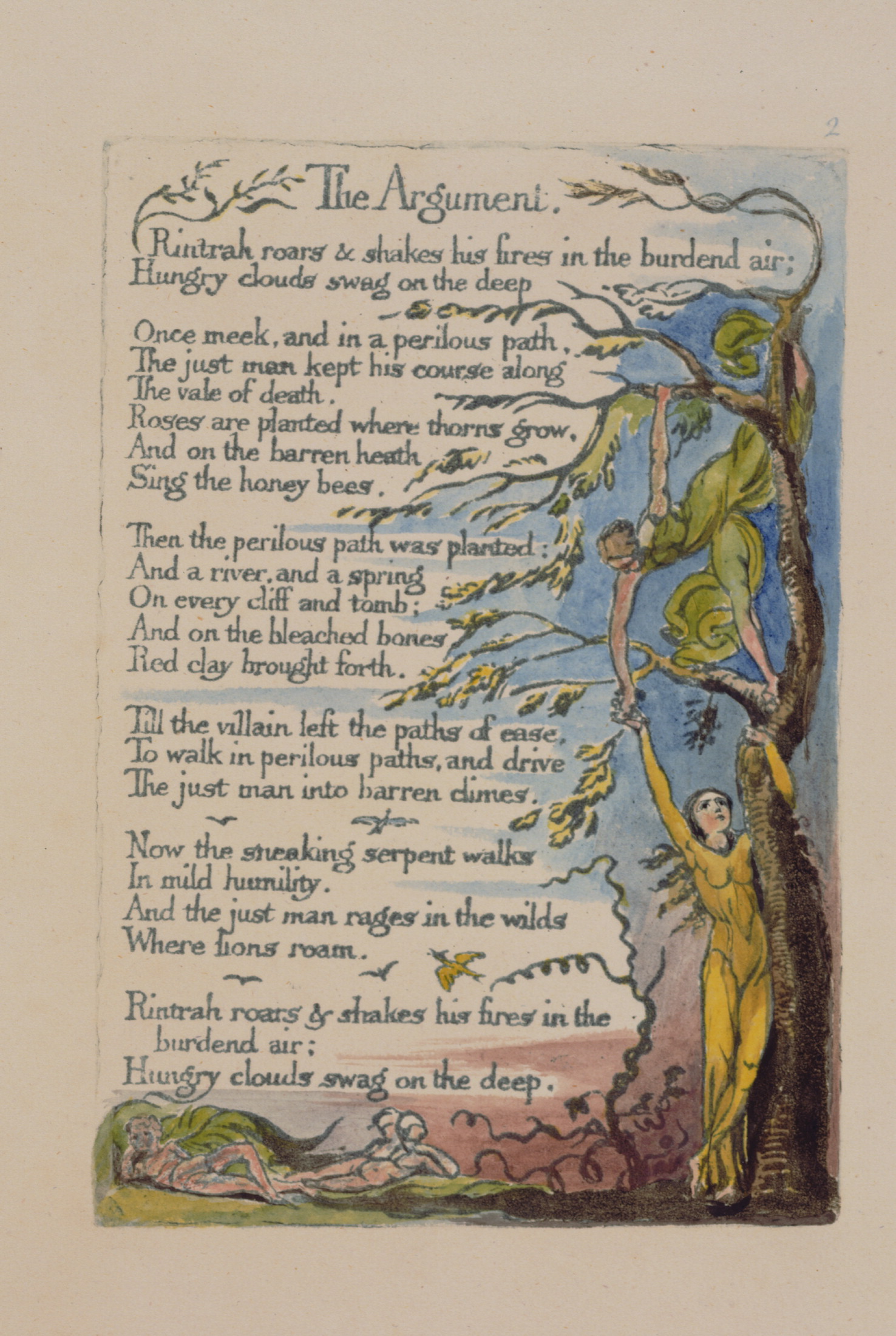***************************************************************************
Rintrah roars & shakes his fires in the burdend air;
Hungry clouds swag on the deep
Rintrah roars & shakes his fires in the burdend air;
Hungry clouds swag on the deep
Once meek, and in a perilous path,
The just man kept his course along
The vale of death.
Roses are planted where thorns grow.
And on the barren heath
Sing the honey bees.
The just man kept his course along
The vale of death.
Roses are planted where thorns grow.
And on the barren heath
Sing the honey bees.
Then the perilous path was planted:
And a river, and a spring
On every cliff and tomb;
And on the bleached bones
Red clay brought forth.
And a river, and a spring
On every cliff and tomb;
And on the bleached bones
Red clay brought forth.
Till the villain left the paths of ease,
To walk in perilous paths, and drive
The just man into barren climes.
To walk in perilous paths, and drive
The just man into barren climes.
Now the sneaking serpent walks
In mild humility.
And the just man rages in the wilds
Where lions roam.
In mild humility.
And the just man rages in the wilds
Where lions roam.
Rintrah roars & shakes his fires in the burdend air;
Hungry clouds swag on the deep.
Some interpretations:
- Rintrah = Elijah, the angry prophet. His roaring certainly seems energetic enough.
- "left the paths of ease, / To walk in perilous paths" = Christianity was perverted from its original power to become an institutional religion.
The just man is laughed to scorn (Job 12:4).
Perilous Path occurs three times in the text. It obviously had a special meaning to Blake.

No comments:
Post a Comment